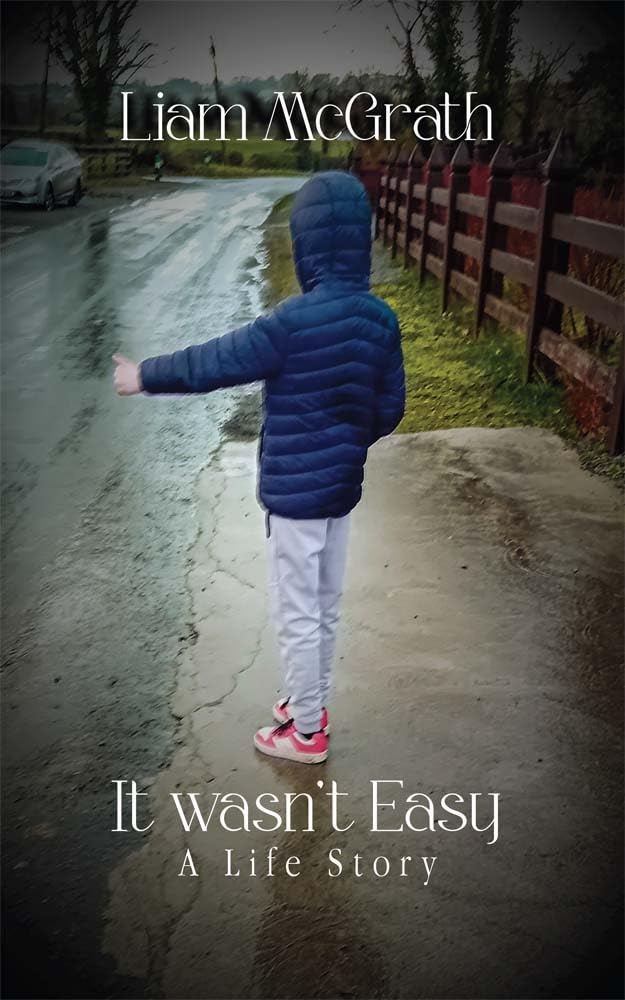Some lives unfold quietly. Liam McGrath did the opposite. It Wasn’t Easy arrives this year as a high-stakes, deeply human autobiography that doesn’t just tell a story; it hurls readers into the chaos, danger, heartbreak, and hard-won resilience that shaped a boy from Athlone into a soldier who served in two armies and a man who refused to let life pin him down. This is a book that earns every page. No fluff. No gloss. Just a brutally honest account of a life lived all-in.
When Childhood Ends Before You’re Ready to Grow Up
McGrath opens with Ireland the way kids remember it, sunlight on the River Shannon, fishing with his father, the roar of a Norton motorbike, a rhythm that felt safe. Then March 1963 blew a hole blew straight through it. His father, Corporal John McGrath, was killed during UN service in the Congo. One freak accident. One moment. Everything gone.
London offered no soft landing. Truancy became McGrath’s default setting; London’s Underground became his playground; history tours became his escape route. He ran, hid, hitchhiked, stowed away on ferries, and scraped by in ways most adults wouldn’t dare. Each detention center hardened him. Each escape sharpened him. And St Edward’s Approved School finally forced him to confront a truth he’d been outrunning grow up or get swallowed whole.
The Road Out of Trouble Runs Straight into the Parachute Regiment
Once free, McGrath didn’t drift; he volunteered for the British Army. Rejected three times by the Royal Marines because of his juvenile record, he went after something even harder: the Parachute Regiment. Sixty-four men started the course. Eighteen finished. His years living by his wits gave him the mental grit that many stronger men couldn’t summon.
Deployments pulled him across Northern Ireland, Cyprus, Kenya, places where danger wasn’t an abstract concept; it was the air. And then, in Belfast, he found something he didn’t expect: Doris. They married young, raised a son, and carved out a small life in the middle of a conflict zone.
Everything was fragile, but it was his. And in 1976, everything shattered again. Doris was killed during a robbery at a neighbor’s house, and that loss hit harder than any battlefield. McGrath calls it “the hardest thing I’ve ever experienced.” Considering what this man lived through, that line doesn’t just hold weight; it carries the book’s emotional spine.
A Second Army, a Second Family, and a Second Chance to Stand Still
After Doris’s death, he walked away from the British Army to raise his son. Civilian life gave him new problems, bills, instability, the kind of grind that wears people down quietly. He turned to the Irish Defence Forces, only to be arrested as AWOL on day one due to a paperwork nightmare. He fought his way back in, literally, through a court-martial that he navigated with sheer nerve.
This chapter wasn’t about chaos. It was about rebuilding. He married Philomena, raised four children, and finally had a home that didn’t feel temporary. Military life pushed him again, Ranger Wing selection at 34 (and shrugging it off like it was a morning jog), GIS and cartography roles that opened overseas deployments across Lebanon, Liberia, Chad, and even serving alongside his youngest son, Aaron. He retired at 60 with a record of service that reads like a catalogue of the world’s hardest assignments.
Retirement Doesn’t Mean You Stop Moving
Most people retire to rest. McGrath retired to the Indian Ocean to protect ships from Somali pirates. Then he looked at a gold mine job in Kenya for good measure. Slowing down wasn’t the point. Staying alive in every sense was.
But age brings its own battles: a shoulder injury, prostate cancer, radiotherapy, and eventually Parkinson’s. He writes about these years without melodrama or self-pity. He just tells the truth, which somehow makes it hit harder.
The Message Driving Every Chapter Forward
This memoir isn’t stitched together with sentiment; it’s held together by resilience. McGrath writes like a man who’s spent a lifetime walking toward difficulty instead of around it. The theme is unmistakable: you don’t control what life throws at you, but you decide what you do next.
And the dedication to his mother says it best:“There is always a light at the end of the tunnel; you just need to know which direction to be looking.”
Availability
It Wasn’t Easy is published and available in paperback and hardcover. For interviews, review copies, or media enquiries, contact: The Empire Publishers (UK)
Media Contact
Company Name: The Empire Publishers UK
Contact Person: Iris Williams
Email: Send Email
Country: United Kingdom
Website: https://www.theempirepublishers.co.uk/

